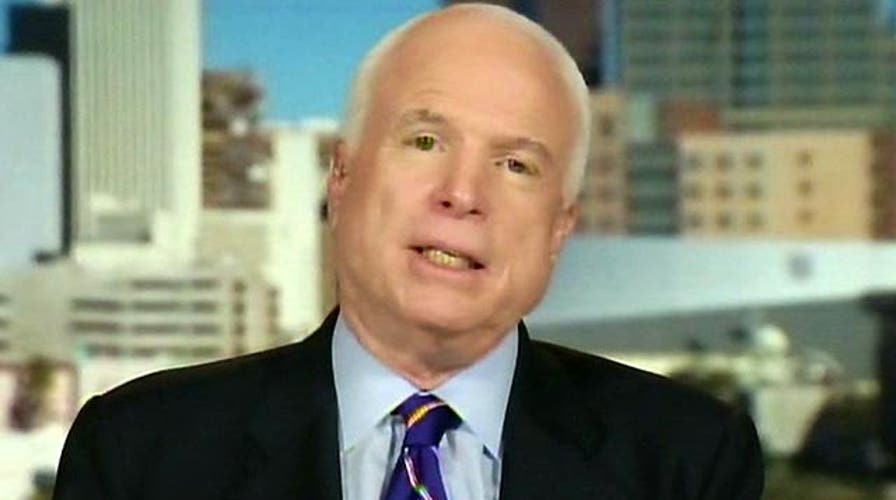WASHINGTON – Republican lawmakers called on President Obama Friday to take stronger stance against a nuclear-armed North Korea and its leader’s increasingly hostile threats against the United States.
The lawmakers urged the administration to reassess the security posture toward the Kim regime and its ballistic missile and nuclear weapons programs. The letter, written by representatives from Ohio, Alabama, Utah, Colorado and Oklahoma, ask Obama to also strengthen the country's defensive and offensive cooperation with its allies.
“Each and every entity violating international sanctions on North Korea must immediately be frozen out of global commerce,” the letter stated. “Urgent action must be taken to undo your devastating reductions to our missile defenses.”
On Thursday, the U.N. Security Council punished the regime by issuing new sanctions against the nation, despite Pyongyang's threat of a pre-emptive nuclear strike on the United States.
The penalties came in an unanimous resolution drafted by the U.S. along with China, which is North Korea's main benefactor. Beijing said the focus now should be to "defuse the tensions" by restarting negotiations.
The new sanctions came in response to North Korea's underground nuclear test on Feb. 12 and were the fourth set imposed by the U.N. since the country's first test in 2006. They are aimed at reining in Pyongyang's nuclear and missile development by requiring all countries to freeze financial transactions or services that could contribute to the programs. They also ban the sale of yachts, racing cars, luxury automobiles and certain types of jewelry to beef up a 2006 ban on the export of luxury goods to Pyongyang.
In the year that he’s been in power, North Korea’s new leader Kim Jong Un has hit all the bully highlights his father did during his nearly two decades of rule. He’s vowed to take out much of the Western world, called America an “imperialist aggressor” and conducted several missile tests. North Korea escalated its statements earlier this week ahead of the United Nations slapping yet another sanction on the country in response to its Feb. 12 atomic test it.
U.S. Ambassador to the United Nations Susan Rice said Thursday’s actions “will bite and bite hard.”
But not everyone is convinced.
Jim Walsh, a professor of the Security Studies Program at Massachusetts Institute of Technology, says adding sanctions only provides lip service to the problem and won’t do much to sway or scare the defiant Kim.
“You can pass 100 sanctions and if nothing has changed, passing 101 isn’t going to fundamentally change the dynamic,” Walsh told FoxNews.com Friday.
Walsh believes it’s important for Kim, who has been reported to be in his late 20s or early 30s, to look strong to his people and says that could be the reason he’s upped his rhetoric. He’s trying to rebuild a nation that his father rigidly ruled and has to prove himself, Walsh said.
Aside from what some describe as empty threats and weightless sanctions, the United States has done very little to stop North Korea. Walsh believes that if America changes its approach now, critics will call out the country for caving to North Korean antics.
“There is no way Obama can go back and start a different dialogue because he’ll be accused of rewarding bad behavior,” Walsh said. “The North Koreans know we are not going to invade them. We know they’ll fire off a rocket to hit Seoul. And if they do that, they know we’ll go after them. They aren’t stupid or suicidal so what’s likely to happen is that the cycle of provocation – sanction – provocation will continue.”
Pyongyang was hit with another round of sanctions after its 2009 nuclear tests. In addition to the luxury goods ban, there is an arms embargo on North Korea, and it is forbidden from trading in nuclear and missile technology.
China has supported all U.N. sanctions against North Korea but only after working to dilute the proposed measures. U.N. diplomats say that Chinese companies have often played a key role in helping North Korean entities bypass the sanctions.
The Associated Press contributed to this report.





